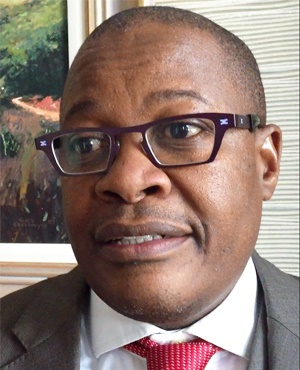
Eskom’s control of South Africa’s energy sector was further exposed this week as battle lines were drawn between the state utility and the country’s renewable energy sector. At stake is South Africa’s energy future, with critical decisions to be made in the next year.
At the centre of the conflict is what technologies can provide base load power – which means 24-hour uninterrupted power – compared with the current intermittence of renewable technologies.
On Thursday Eskom suddenly postponed the signing of a 20-year power purchase agreement (PPA) with Redstone Solar Thermal Power Project, an independent power producer (IPP), “until further notice”. The utility said conditions by both parties had not been fulfilled. Eskom spokesperson Khulu Phasiwe would not elaborate.
Eskom was to have bought 100 megawatts from the project for an estimated R50 billion.
The Redstone project, near Postmasburg in the Northern Cape, needs to sign the PPA with Eskom to reach financial close by the end of the year. This means construction can be started only if the agreement is signed.
The concentrated solar project will use molten salt technology to store energy and provide electricity – even when the sun is not shining. It was aiming for a connection to the grid by 2018. For Eskom this is the only renewable energy technology that has base load potential in South Africa.
Last week a letter from Eskom chairman Ben Ngubane to Energy Minister Tina Joemat-Pettersson
was leaked. The letter proclaimed that Eskom wanted
to discuss concerns about the further agreements
with IPPs.
And the much-needed update of the Integrated Resource Plan (IRP), which will ultimately determine South Africa’s energy future, has still not been released. Last updated in 2010, the document will determine the exact role for producers of nuclear, renewable, coal and gas energy. The energy department has hinted that the report will be released before the end of year.
Insiders involved in drawing up the new IRP – though they do not have access to the final document – said it was being kicked back and forth to find a space for expensive nuclear energy.
Eskom CEO Brian Molefe said this week that he believed the current IRP was outdated and that the push for renewables in 2010 was not relevant to South Africa’s energy needs now.
Gordon Mackay, the DA shadow minister of energy, said in a statement last week that “Molefe has no authority to dictate South Africa’s energy policy”.
What is abundantly clear, however, is that Eskom – because it owns and operates South Africa’s grid and transmission lines, and is responsible for keeping the lights switched on – believes it has the power to dictate what energy resources it should use. And top management has said at Eskom they do not have enough faith in renewables to provide base load at this stage.
Up to now, about 2 310MW of renewables had been connected to the grid, or about 5% of Eskom’s total capacity, said Matshela Koko, Eskom’s group executive for generation. In fact, he said, renewable IPPs’ average load factor generated an average of 716MW.
The utility was forced to buy IPPs’ solar and wind-generated electricity that it did not need during the day, while at night during peak hours, much-needed energy was not available. Yet proponents of renewable energy said Eskom was still stuck in the 20th century, when only big projects centred on coal and nuclear were seen to be reliable power providers.
That Eskom favours nuclear power is undisputed. In the past six months the state utility has made it abundantly clear that it wanted nuclear energy to replace coal-generated energy. Molefe said this week that nuclear was the way to go if South Africa favoured of a green economy.
The country plans to add as much as 9 600MW of nuclear energy by 2030 to its fleet of power plants. But Treasury has been adamant the decision should not bankrupt South Africa.
The IPP renewable programme has been a success story in recent years, responsible for the investment of R194 billion. And the energy department said earlier this year the next bid windows would increase the investment to more than R255 billion.
At the moment, South Africa aims to have 17 800MW of green energy by 2030. The renewable IPP programme was seen as a big driver of this.
International energy firms such as Ireland’s Mainstream, Italy’s Enel, Saudi firm Acwa Power and Spanish group Acciona have all flocked to South Africa.
Tariffs have also come down dramatically since the inception of the programme, falling from R3.29 to R0.79 in the last round. But Eskom’s reluctance to commit to the renewables programme has them deeply worried.
Speaking on conditions of anonymity, at least three producers told City Press that Eskom’s attitude, as the power buyer, was a big concern for them.
“If you do energy business in South Africa, you can’t escape dealing with Eskom. And it simply appears that Eskom doesn’t have faith in our plants,” a wind operator said. “The power purchaser is a critical cog in any investment we do. We are worried.”
Another solar operator looking to expand its business in South Africa said Eskom was holding the whole programme ransom. “Unfortunately, it is still very much a monopoly,” the operator said, adding that they were worried about the time frame of the future rounds of the renewable IPP programme.




 Publications
Publications
 Partners
Partners








